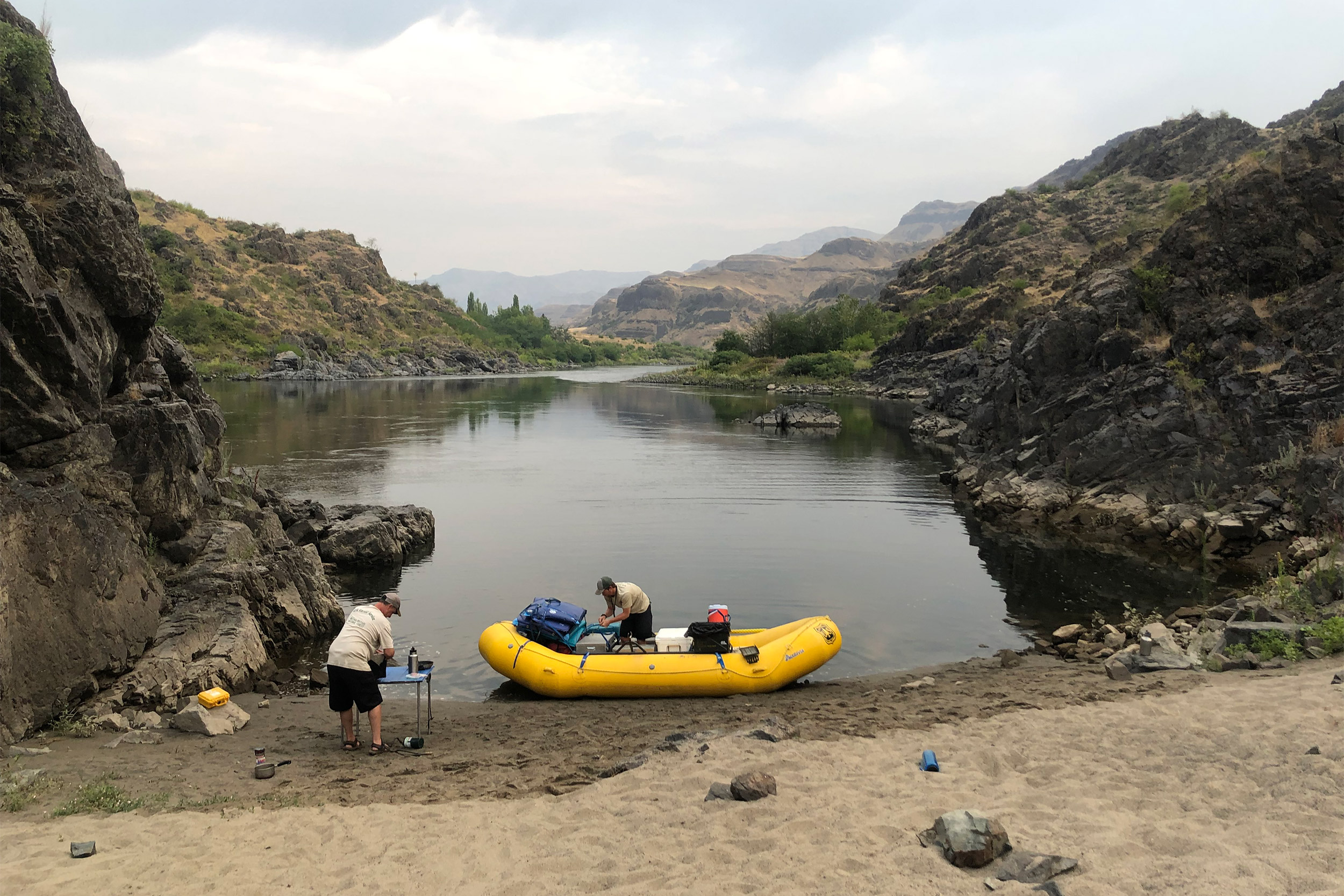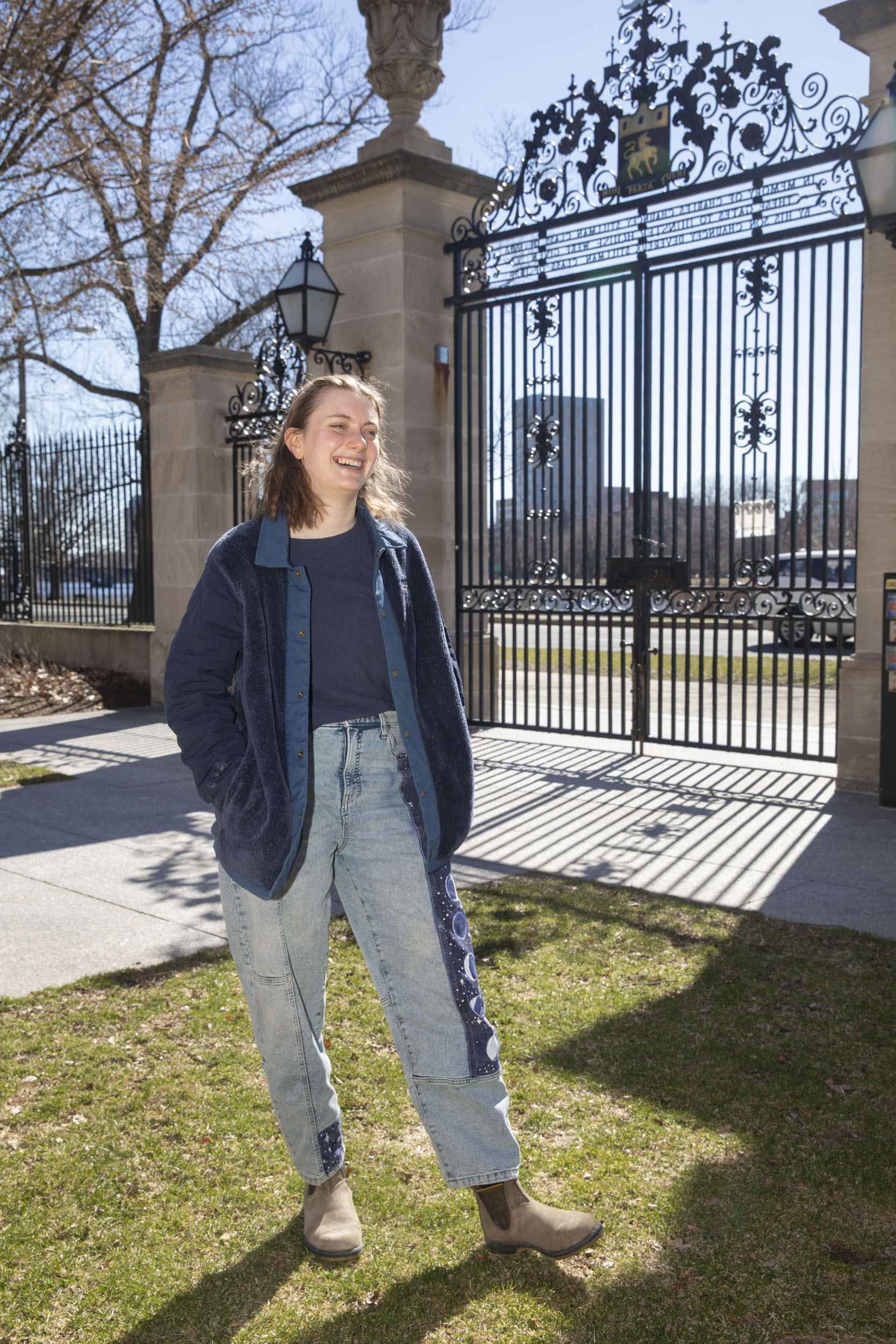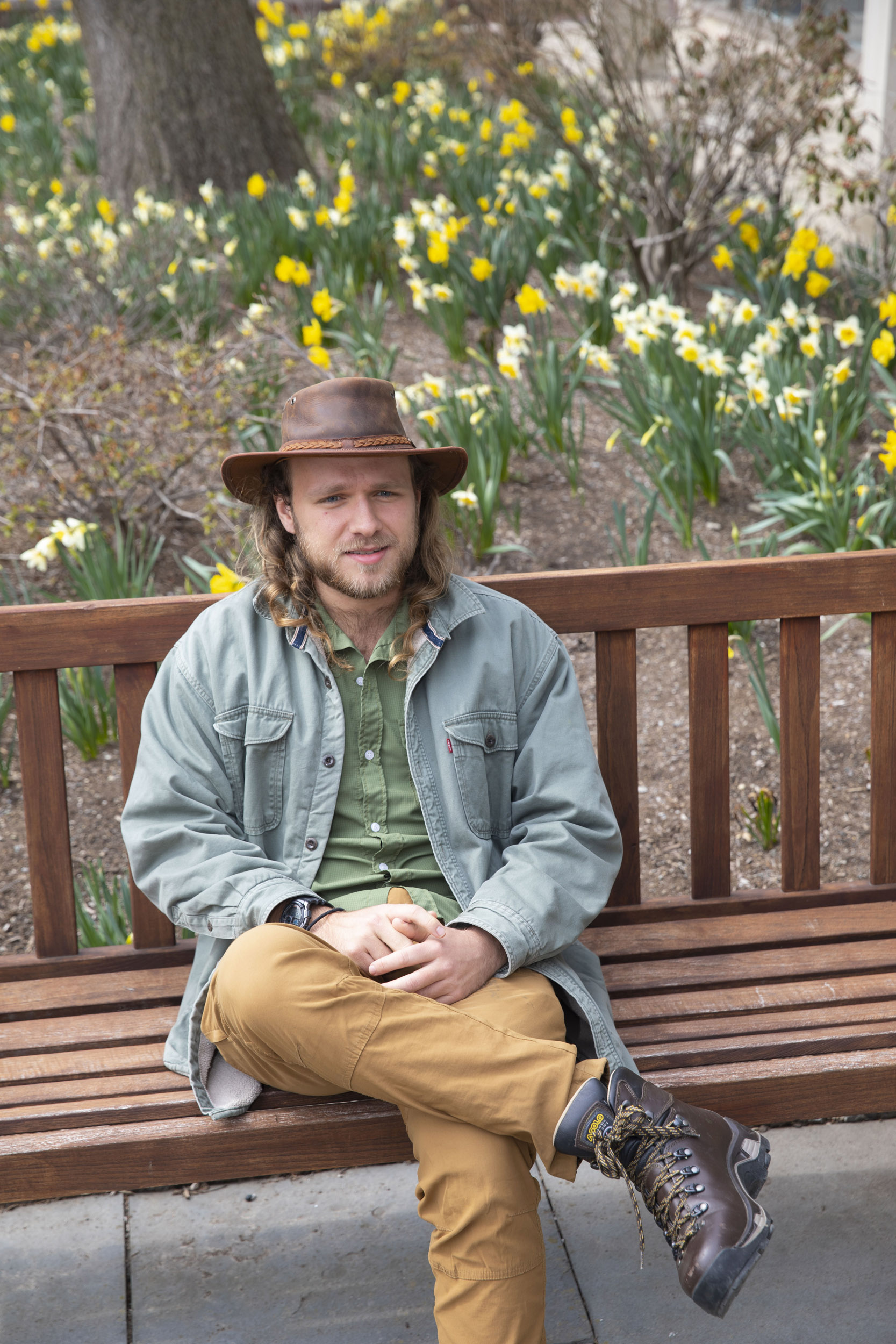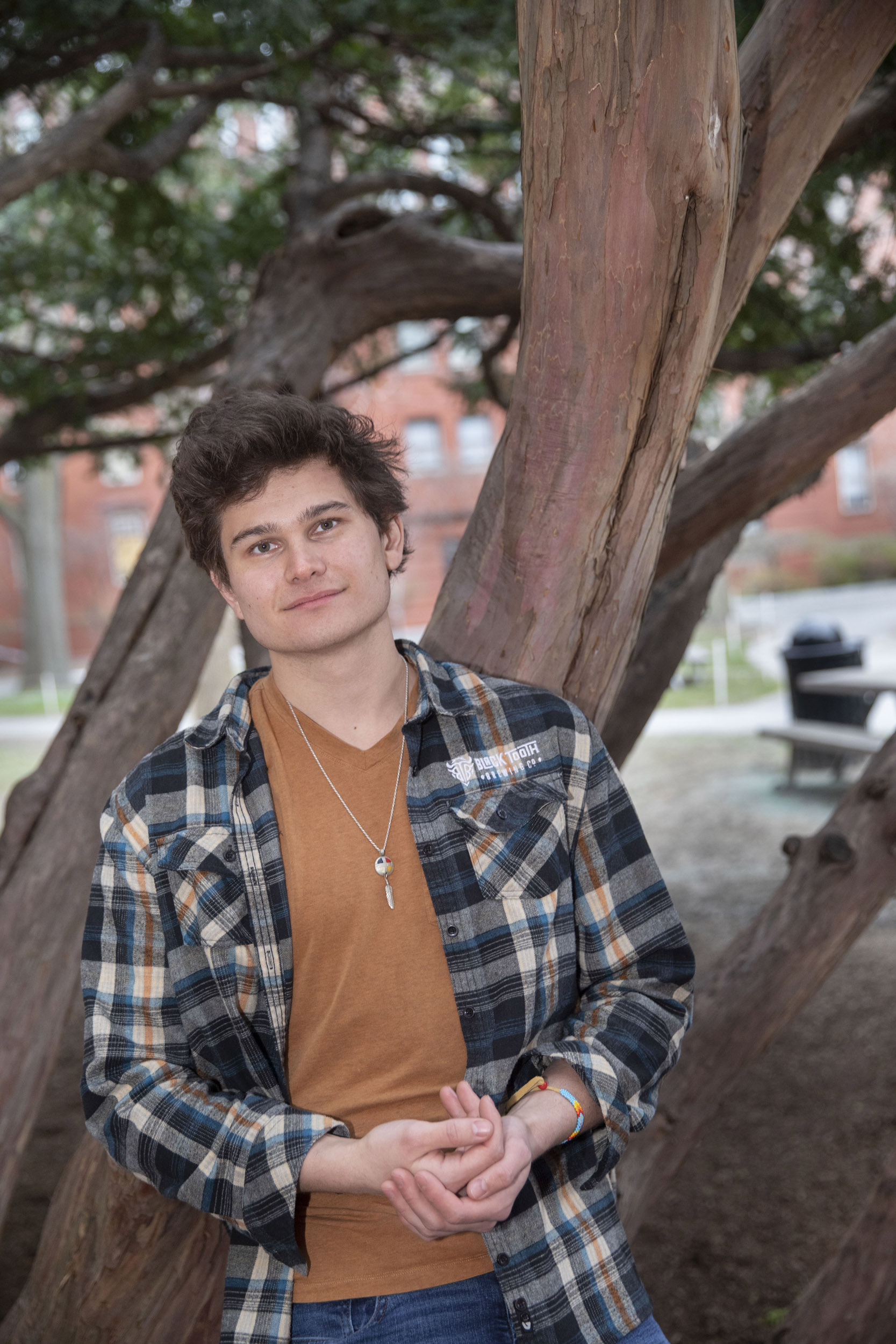
Elijah McGill ’24 spent his time with the U.S. Forest Service navigating the Pacific Northwest’s Snake River with fellow rangers.
Photo courtesy of Elijah McGill
When your office is water, woods, and sky
Students who’ve worked as rangers, interns at national parks, forests share stories about how great the outdoors really is
To mark Earth Day the Gazette spoke to three students about their love of the outdoors and park ranger life.
Serena Wurmser was 12 when she attended an astronomy program at Bryce Canyon National Park. She peered into one telescope after another set up in the red-lit parking lot and listened eagerly as park rangers explained the significance of different celestial objects.
“Growing up in New York City and New Jersey, I hadn’t seen true night skies because of the light pollution,” Wurmser ’23 reflected. “That evening unlocked my love of astronomy.”
“Your job as an interpreter is to give visitors a way to see the park as more than just a beautiful view.”

Serena Wurmser ’23 grew up in New York City and New Jersey.
Kris Snibbe/Harvard Staff Photographer
Almost a decade later, the Dunster House resident would run similar astronomy programs at Great Basin National Park in Nevada. She spent the summer before her junior year working as a Scientists in Parks astronomy intern and returned to the role last summer before her senior year.
The First-Year Outdoor Program and Harvard Outing Club leader enjoyed interacting with visitors as she hiked through Great Basin’s deserts and valleys. At night, she gave ranger talks followed by telescope viewings, performed dark sky readings, and helped run the Great Basin Star Train, a vintage diesel locomotive that takes visitors into the desert to stargaze.
“Your job as an interpreter is to give visitors a way to see the park as more than just a beautiful view,” she said. “You can encourage them to compare the brilliant night sky at Great Basin to the night sky they see at home, giving new insight into light pollution, other types of pollution, and climate change.”
After graduating in May with a joint concentration in astrophysics and Earth and planetary sciences, Wurmser plans to fly to Montana to work as an interpretive ranger at Glacier National Park.
“I want to continue with jobs that are centered around facilitating care for the environment,” she explained. “I fell in love with the outdoors as a way of both connecting to your surroundings and building community, and as a space to share identity and compassion.”
“It was a chance to reground myself in the people and the places of this country, and to try to understand the perspectives that I may disagree with.”

Elijah McGill ’24 is from Orono, Maine.
Kris Snibbe/Harvard Staff Photographer
Elijah McGill ’24 shares Wurmser’s love of the outdoors. From Orono, Maine, he grew up searching for crabs at the beach, hiking, and racing whitewater canoes. When he decided to take a gap year in 2020, he sought out work that would bring him closer to nature.
The Quincy House resident secured a river ranger position with the U.S. Forest Service the following spring, navigating the Pacific Northwest’s Snake River in Wallowa-Whitman National Forest. There he chatted with visitors on the water and checked permits at one of the river’s major boat launches.
McGill was “in the middle of nowhere,” hours from the nearest grocery store. But the social isolation turned out to be a valuable learning experience. “It was such a different political, social, and cultural place than anywhere I grew up in,” he said. “It was a chance to reground myself in the people and the places of this country, and to try to understand the perspectives that I may disagree with.”
That summer, the environmental science and public policy concentrator watched the sky fill with smoke as a 400,000-acre wildfire burned only five miles away. With wildfires growing in frequency and severity in the West, it was a poignant reminder of climate change’s presence — and a reminder of nature’s resilience.
“I’ll be climbing in such a sacred area, and I’ll be there in the summer months, when a lot of ceremonies happen. I think the experience will bring me a lot closer to my culture.”

Cade Herrera ’23 is a member of the Oglala Lakota Nation.
Kris Snibbe/Harvard Staff Photographer
“Even a week after the fire burned through, all the grass started resprouting, and this black, desolate, charred moonscape sprang up into green again,” McGill recalled.
Cade Herrera ’23 is at the very beginning of his park ranger experience as he looks forward to working as a climbing ranger at Devil’s Tower National Monument in Wyoming this summer.
The Currier House resident “got bit by the climbing bug” during his sophomore year. This summer, he’ll wake up at 4 a.m. and climb eight hours a day to ensure the safety of both climbers and the 867-foot igneous rock formation itself. The routine may sound grueling to some, but for the vice president of the Harvard Mountaineering Club, it’s a chance to unwind.
“I’ll be done with my job in the afternoon, and I’ll be able to sit in a hammock and read — exactly what I need after five years at Harvard,” the premed neuroscience concentrator said.
As a member of the Oglala Lakota Nation, Herrera grappled with ambivalence toward the National Park Service before applying for the position.
“National parks take a lot of autonomy away from the tribes,” Herrera said. “They keep the land and conserve it, but from a very Western point of view. Tribes were great stewards of the land for more than 10,000 years.”
Although Herrera still has mixed feelings about national parks, he views the ranger role as an opportunity to inform visitors of the monument’s cultural significance.
“I’ll be climbing in such a sacred area, and I’ll be there in the summer months, when a lot of ceremonies happen,” he said. “I think the experience will bring me a lot closer to my culture.”




